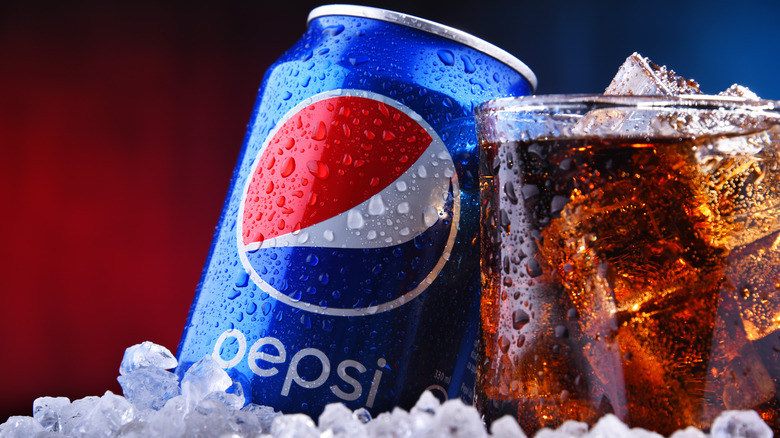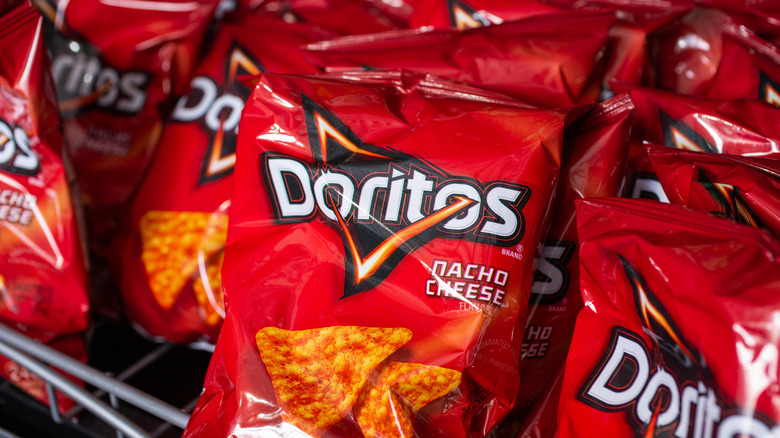PepsiCo Is Slashing Its Unhealthy Ingredients Ahead Of Schedule
It's likely no one is laboring under the delusion that sodas are necessarily good for you. As Medical News Today points out, elevated consumption of sweetened beverages — sodas, as well as fruit juices and non-carbonated sweet drinks like fruit punch — can lead to an elevated risk for a range of health problems, from tooth decay to obesity. Of course, this is why common sense preaches moderation in all things; a soda every now and then isn't exactly going to spell your demise.
Yet with the general public understanding of the impact of healthy eating on the rise (via Pew Research Center), manufacturers of soda have made strides to create beverages that are at the very least marginally better for the consumer than traditional recipe soft drinks. In 2016, Reuters reported that PepsiCo announced a global reduction in calories from added sugars, aiming to have 100 calories or fewer per 12-ounce serving for at least two-thirds of their beverage portfolio by 2025.
It seems now, though, that PepsiCo is on track to beat this self-imposed deadline as well as others it set for other sectors of their business.
Better beverages and snacks
In their recently released Environmental, Social, and Governance Summary, the global beverage and snack food company reports that they're well ahead of schedule in regards to caloric reduction from added sugars (via Food Business News.) With almost three years left to meet their 2025 benchmark of 67%, PepsiCo says that they were able to bring 53% of their beverage in line with their goal in 2021.
On the snack food side, the company set a 2025 goal of having no more than 1.1 grams of saturated fats for every 100 calories in 75% of their offerings. According to the report, 2021 saw PepsiCo meet that goal a full four years ahead of schedule. Also ahead of schedule is the company's pledge to have 75% of their snack foods contain no more than 1.3 milligrams of sodium per calorie by 2025. By 2021, they had achieved that goal in 66% of their portfolio.
Beyond nutritional concerns, PepsiCo is also working to reduce the amount of single-use packaging their products use with a specific focus on the use of "non-food, plant-based" materials as well as biodegradable packaging.

